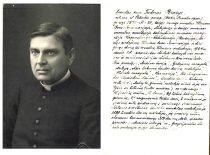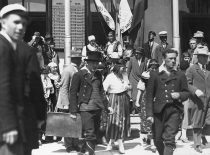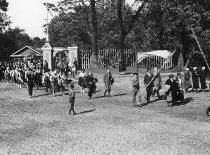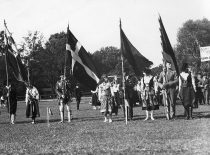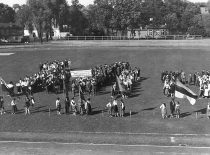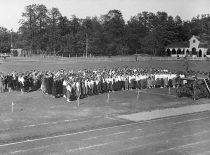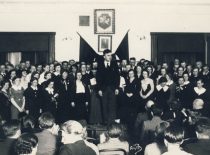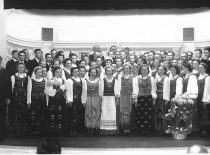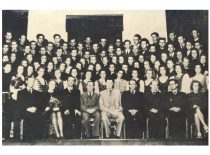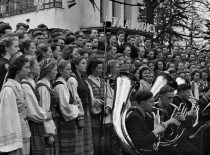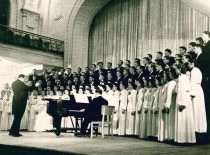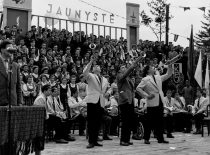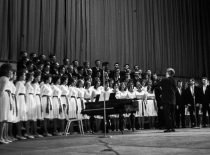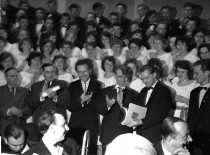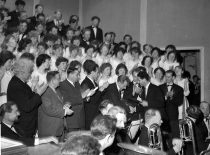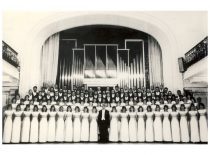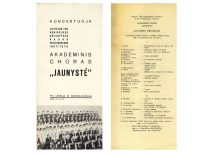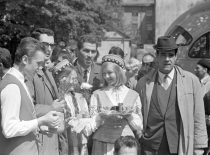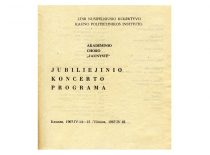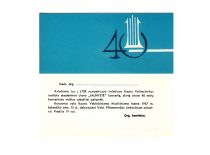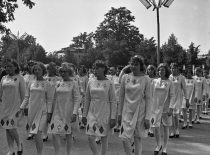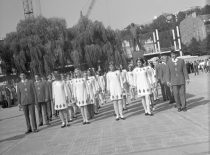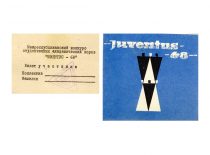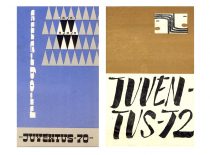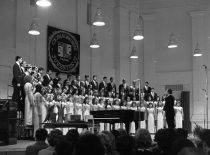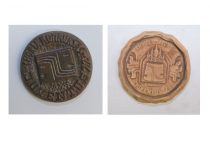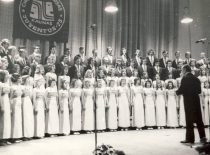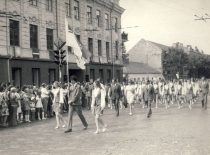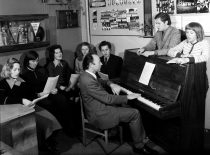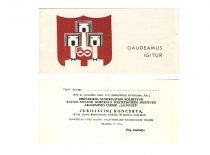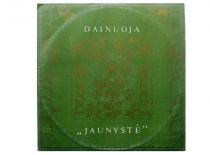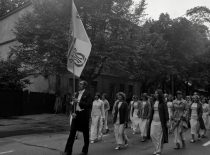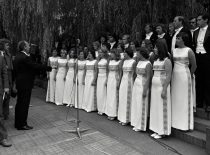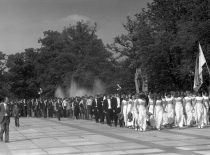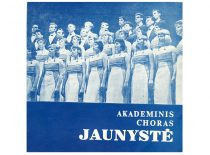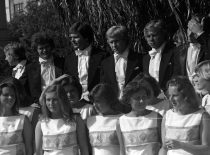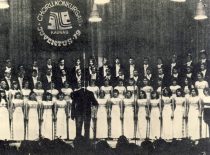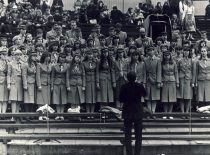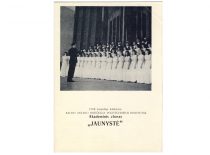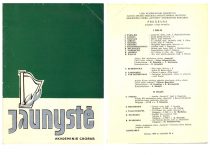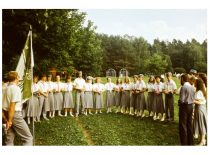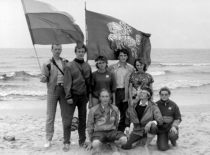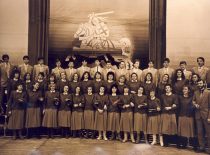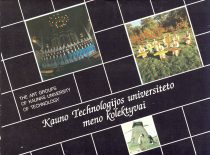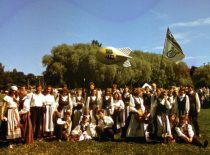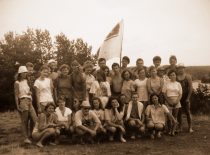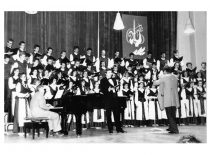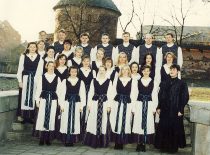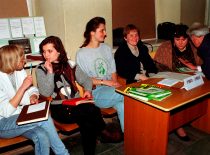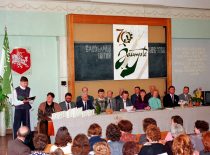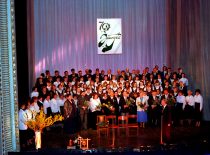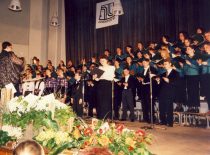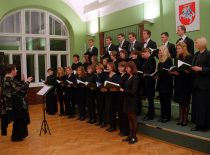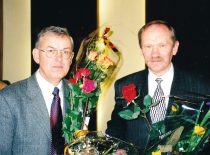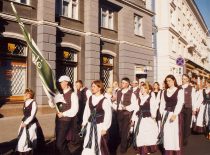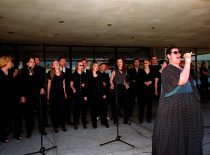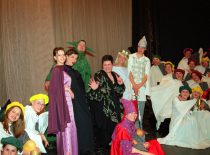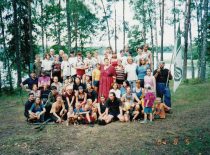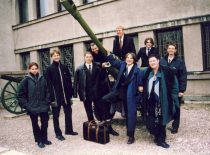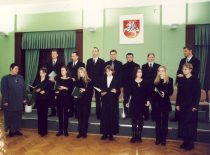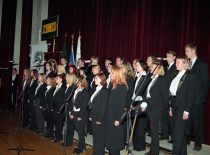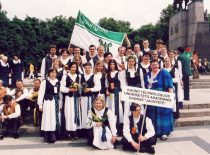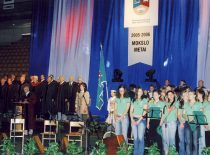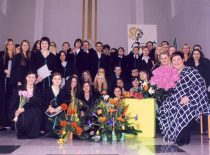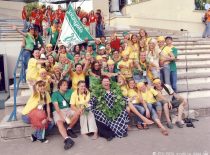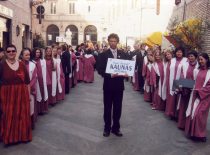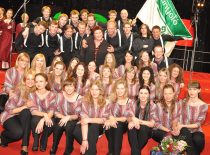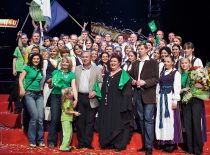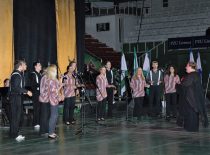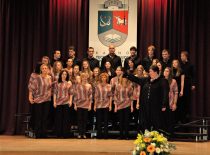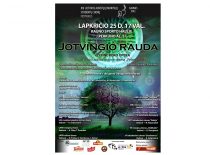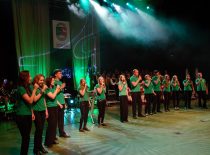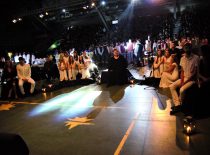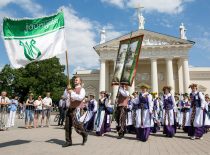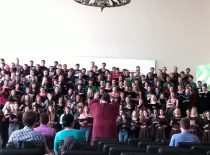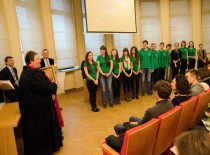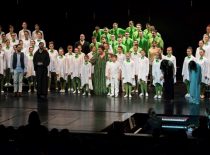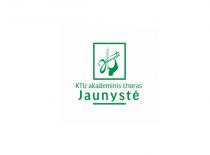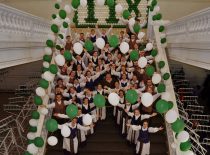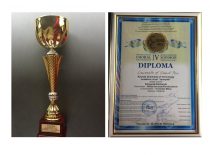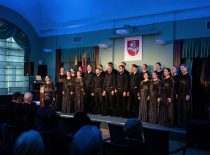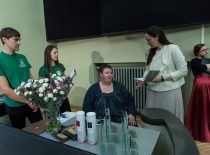In independent Lithuania
When Lithuanian won its independence, the active period of touring began for “Jaunystė”. In 1991, the choir with its leader R. Misiukevičius participated in the International Song Festival “Bridges of Song” in Tallinn and Student Song Festival “Gaudeamus-XI” in Riga, toured Scandinavian countries – Sweden, Norway (in Trondheim, R. Miusiukevičius conducted the Mass G-dur by F. Schubert, performed by the “Jaunystė” and the chamber orchestra of Trondheim City) and Denmark. In 1992, “Jaunystė” have a concert at Kaunas Philharmonic Hall to mark its 65th anniversary. It was the first performance of the “Tu Vilniuj pasilik, valdove” (“You Stay in Vilnius, Lord”) by Bronius Budriūnas in Lithuania; the choir also performed the Mass G-dur by F. Schubert. “Jaunystė” also performed the cantata by B. Budriūnas in Klaipėda for the participants of the Choral Music Conference of the Lithuanian Diaspora, gave a concert for the participants of the VII World Lithuanian Symposium of Science and Culture at the hall of Vytautas Magnus University.
Since 1994, the choir is led by a talented choirmaster and conductor Danguolė Beinorytė who was the choirmaster of this choir since 1993. In 1994, 1995 and 1996, the choir participated in the traditional Lithuanian Student Festivals in Vilnius, in 1995 – the Baltic Student Song Festival “Gaudeamus-XII” in Tartu (Estonia), in 1996 – Kaunas City Song Festival. In 1997, “Jaunystė” won the special prize for the performance of the cantata “Amžių dainos” (“Songs of Ages”) by Zita Bružaitė at the revived International Mixed Student Choir Competition “Juventus-VIII“. In 1998, Choir “Jaunystė” participated in II World Lithuanian Song Festival in Vilnius. In 2001, a CD “Salve mundi” of the Choir “Jaunystė” was released. In 2002, D. Beinarytė became an organist at Kaunas Christ’s Resurrection Basilica. Since then, up to 2014, Choir “Jaunystė” was singing on various occasions and celebrations at the church. In 2001, on the occasion of its 75th anniversary, the Choir “Jaunystė” performed the opera-mystery “Undinė” (“Mermaid”) by Zita Bružaitė ((Director, Stage Designer, Conductor D. Beinarytė). In 2007, this opera was repeated at Kaunas Castle. The choir is the organiser and winner of the festivals “Juventus”. KTU Academic Choir “Jaunystė” had many concert tours: Hansa Youth Music and Art Festival in Lippstadt town, Germany, in the summer of 2005, Italy in 2007. In 2013, “Jaunystė” became the winner of the Lithuanian Amateur Adult Choir Competition and gained the right to be called the best amateur choir in Lithuania for four years; it won the first prize in the International Mixed Student Choir Competition “Juventus“. In 2014, the choir received the award “Aukso paukštė” (“Golden Bird”) by the Lithuanian National Culture Centre in the category of the year “Ryškiausia Lietuvos žvaigždė” (“Brightest Star in Lithuania”). The choir competed for the right to represent Lithuania in the final of the competition “Lietuvos balsai. Chorų Eurovizija 2014” (“Voices of Lithuania. Eurovision Choir 2014”). In 2016, the Choir “Jaunystė” performed a musical epic “Nes ilgiuos tavęs” (“Because I Miss You”) according to “Ponas Tadas” (“Mister Tadas”) by Adomas Mickevičius on the occasion of the 90th anniversary of the establishment of the choir (translation by Vincas Mykolaitis-Putinas and Justinas Marcinkevičius, music by Zita Bružaitė). The topics of the new large oratorio-type work of music: love, emigration, discord among relatives, political tricks remain relevant today. 2017 was the year particularly successful to “Jaunystė” in terms of the awards: – the Grand Prix received at the IV World Children and Youth Choir Championship in St Petersburg (Russia) in February, the second prize in the Lithuanian Choir Competition in October. The choir had more than 50 members in 2020. The choir is a participant in Song Festivals, International Festivals “Gaudeamus”, various concerts and projects. The choir traditionally performs in the University’s events for February 16 and March 11, celebrates its establishment anniversaries, organises barbeque party in September, marks the last rehearsal of the year by a dress-up carnival, “christens” new members, goes on boat trips, travels, etc.
“Jaunystė” is always in a good mood, it shares positive emotions and warmth with people, is full of joy for life, devotion and dedication. The choir is proud of every achievement; however, the biggest merit is personal development and public spirit. All members of the choir are one team, community and it is very important. Those, who catch the disease of “Jaunystė”, have it for their entire lives. They come as students, create families, raise children and later, we see their children coming to us”, – rejoices Choirmaster and Conductor Danguolė Beinarytė.


